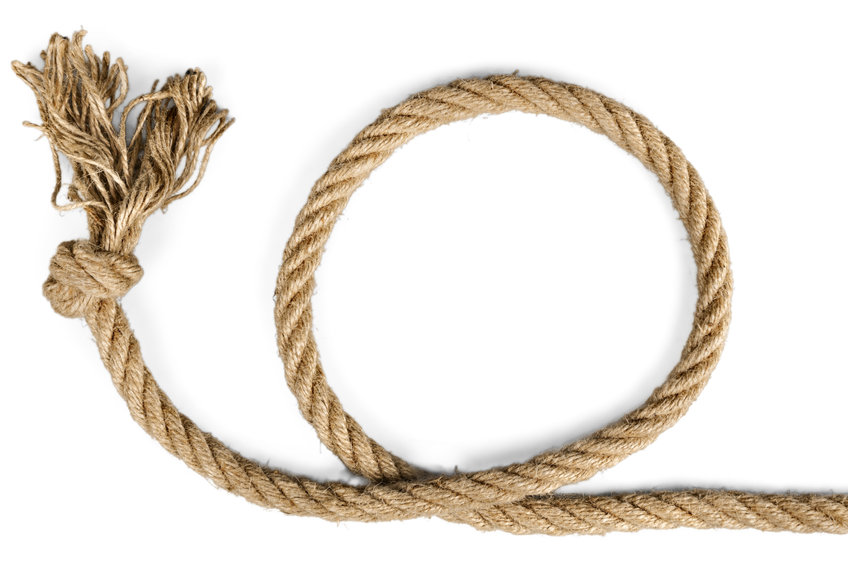Don’t Pick Up The Rope

In 2011, I was the focus of a gaslighting campaign by someone I had known and worked with so closely for years—the best work of my life at that time— an experience that left me clinically depressed and largely in bed for two years when I wasn’t writing books and giving speeches—commitments I had to fulfill.
It was a period of time when I lost my hold on reality. I wasn’t sure who he was anymore, nor myself. What I had known about him was not real, it turned out. He was a user of people, a sociopath. He had an affair with our client to work me out of the contract that I had landed for us. Half his age and with a small child, she left her husband for him. And then he used that client’s money to fund travel to see his new lover in a neighboring state. All while in a 10+ year relationship with a friend of mine. It was like living in an episode of a bad soap opera where up is down and down is sideways.
He told stories about me that weren’t true, but were intended to discredit me. That I was having “mini-strokes” that had made me paranoid. So any objections I raised were discounted as paranoid. It was next level evil and it shook me for a long time.
John and I have a long-standing joke that if someone calls you a pig-f*cker, the last thing you want to do is respond that you are not a pig-f*cker because that will associate you with being a pig-f*cker in ways you do not want to be associated. So I said nothing. No one would believe me anyway, and I figured that whomever believed him without checking in with me first was not worth my time. It was free data for me to discover who discounted my history and believed his wild stories and who were thoughtful, said to themselves, “that doesn’t sound like Patti to me,” and checked in.
His lying ways were found out, eventually. One of the people involved was utterly cruel to me at the time, but eventually reached out on Facebook to apologize and be friends. I responded that she didn’t need my forgiveness—she just needed to examine why she was so cruel to me and that she needed to stay far, far away from me forever. It’s not that I don’t forgive—in this case, I needed a boundary to keep this very painful episode from being in my face daily on Facebook (or anywhere else).
A few years before, I had done some work with a large nonprofit in DC where there was a “gossip culture,” according to many people I talked to there. As a group, we created a culture of inquiry to combat that gossip culture. When someone told them something salacious about another staff member, they all agreed to follow this protocol:
- Really? That doesn’t sound like them. You don’t mind, then, if I check that out with (person being gossiped about)?
- And what would you like me to do with this information?
Because they all agreed to this process, it worked.
Once, I received a five-page letter from a former boss about an article I had written for a major publication. In the letter, he outlined that a former colleague had realized it was written about him and was going to sue me over it. No one had been identified in the article and no organizations were mentioned. The reason he recognized himself was that he had actually said the thing I was writing about: a young Black accountant had come to him to ask if her professional development budget could be used, in part, to join the Black accountants’ association. He replied, “That’s ridiculous. I don’t belong to a white accountants’ association.” The article was about affinity groups. He couldn’t see that he did, in fact, belong to an association that was predominantly white.
I wrote my best reply to the accusatory letter, responding with great clarity to every single point raised in the letter. I informed the publisher what was going on, and they were unconcerned because no one had been identified in the article. My letter was brilliant—my father always told me I could have been an attorney. I asked a lawyer friend, Larry, to just read through it to make sure I wasn’t saying anything stupid in it.
Larry called me the next day. “I really love your letter, Patti.” I puffed up with pride. “I especially like the part where you say ‘Dear Mike,’ and the part where you say ‘Sincerely, Patti’ and I would take out everything in between.”
<blink>
It was a huge lesson for me. I didn’t need to respond. I didn’t need to say, “I’m not a pig-f*cker.” I didn’t need to do anything except keep doing my work. Let them go. The most powerful person in a tug of war is the person who doesn’t pick up their end of the rope.
Let’s build a culture of inquiry rather than judgment. And let the ropes or lies lay where they will.









